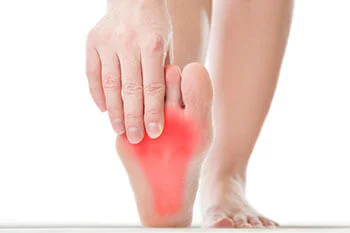Table of Contents
Introduction
Plantar warts are essentially growths that can form on the soles of the feet due to contracting the human papillomavirus. Many patients who are trying to prevent the onset of plantar warts will ask podiatrists who can get plantar warts. The answer is that ultimately anyone can develop a plantar wart. However, certain types of people are more susceptible than others. For example, children attending school may be more susceptible than adults to developing plantar warts. Additionally, individuals living with weakened immune systems could be especially prone to developing plantar warts. This might include people with HIV and those on chemotherapy. If you are living with plantar warts, it is suggested that you schedule an appointment with a podiatrist today for treatment options.
Plantar warts can be very uncomfortable. If you need your feet checked, contact one of our podiatrists of Integrative Foot & Ankle Centers of Washington. Our doctors can provide the care you need to keep you pain-free and on your feet.
About Plantar Warts
Plantar warts are the result of HPV, or human papillomavirus, getting into open wounds on the feet. They are mostly found on the heels or balls of the feet.
While plantar warts are generally harmless, those experiencing excessive pain or those suffering from diabetes or a compromised immune system require immediate medical care. Plantar warts are easily diagnosed, usually through scraping off a bit of rough skin or by getting a biopsy.
Symptoms
- Lesions on the bottom of your feet, usually rough and grainy
- Hard or thick callused spots
- Wart seeds, which are small clotted blood vessels that look like little black spots
- Pain, discomfort, or tenderness of your feet when walking or standing
Treatment
- Freezing
- Electric tool removal
- Laser Treatment
- Topical Creams (prescription only)
- Over-the-counter medications
To help prevent developing plantar warts, avoid walking barefoot over abrasive surfaces that can cause cuts or wounds for HPV to get into. Avoiding direct contact with other warts, as well as not picking or rubbing existing warts, can help prevent the further spread of plantar warts. However, if you think you have developed plantar warts, speak to your podiatrist. He or she can diagnose the warts on your feet and recommend the appropriate treatment options.


